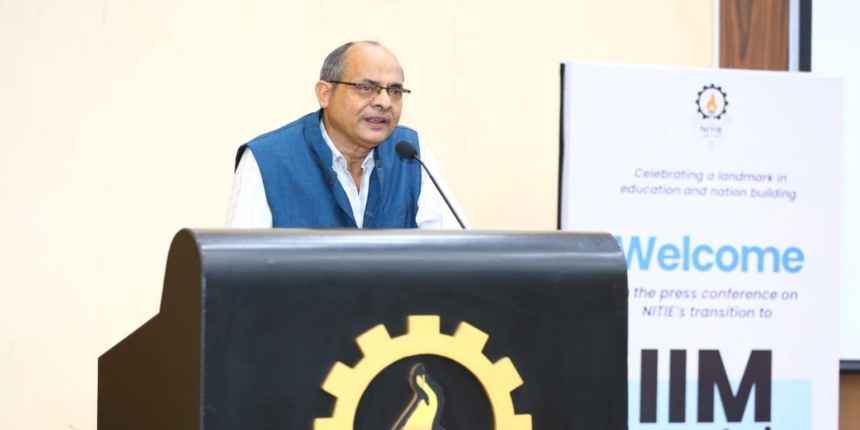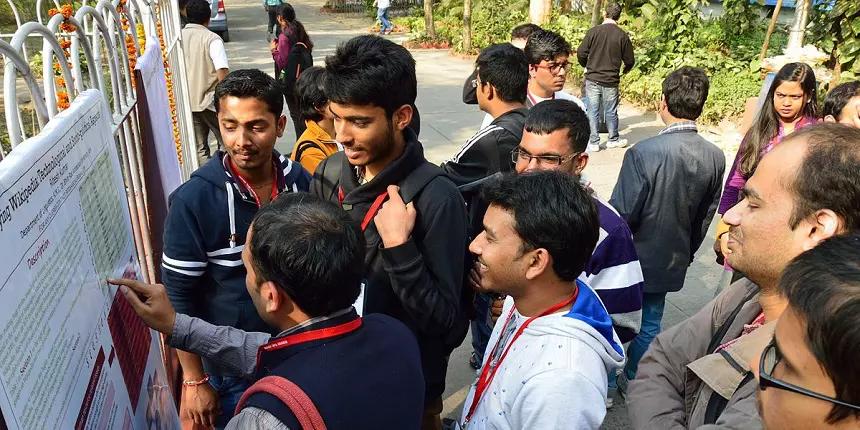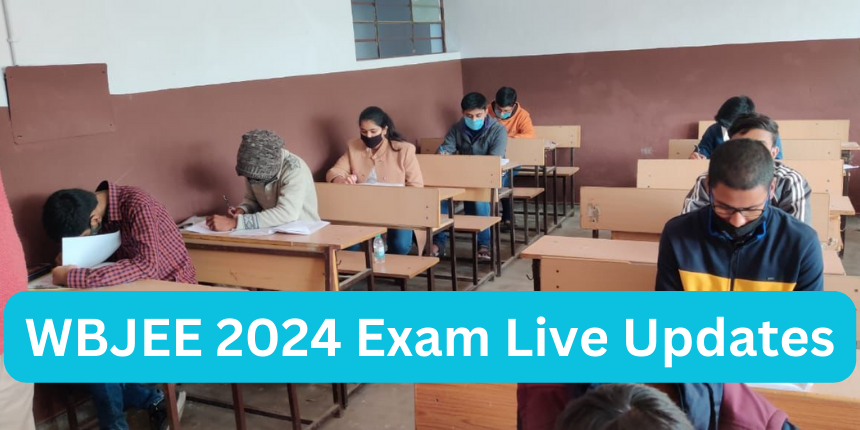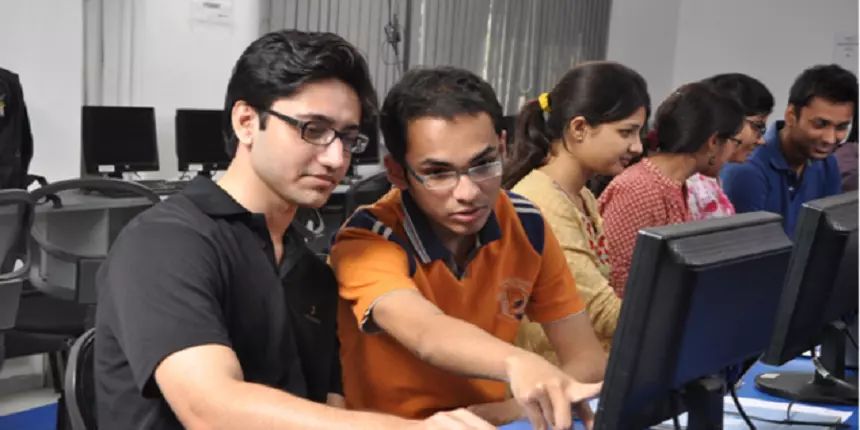‘After IIM tag, we started seeing more placement offers’: IIM Mumbai Director
IIM Mumbai: NITIE Mumbai pursued an IIM tag for two decades. Now, it can offer MBA degrees and has already seen its placement rates improve.
 As NITIE Mumbai became IIM Mumbai, the institute is set to see a lot of changes (Image: FB\IIM Mumbai)
As NITIE Mumbai became IIM Mumbai, the institute is set to see a lot of changes (Image: FB\IIM Mumbai)Atul Krishna | November 8, 2023 | 12:12 PM IST
NEW DELHI: In August 2023, the National Institute of Industrial Engineering (NITIE) became the newest Indian Institute of Management, IIM Mumbai. Manoj K Tiwari, its director, spoke to Careers360 about how the former engineering institute became an IIM, the two-decade pursuit of an IIM tag, and how earning it has already changed how recruiters perceive the institute. Edited excerpts below.
Q. Why did NITIE want to be IIM Mumbai? What changes with this?
A. We were constrained by our inability to give degrees. We were only providing postgraduate diplomas. After 2017, all the IIMs started awarding MBAs. We were not much known for our engineering side. There was some sort of an identity crisis over whether we were a management institute or one for industrial engineering.
Finally, we were also facing problems since many universities were awarding degrees and companies started asking us to explain our PG diplomas. With this change, one thing is very clear – we are a degree-granting institution.
Second, we were working very hard to be one of the best business schools and taking the fact that we were very good in operations and supply chain management, we started getting responses from companies which were earlier not responding to us. Now, we are getting a lot of projects and institutions have started requesting us for collaborations.
We are also changing ourselves and trying to hire more faculty specialising in financing, marketing, and other disciplines of management. We are also constrained by our infrastructure. So, we are trying to create more classrooms and hostels so that we can accommodate more students.
Q. Was it an identity issue that you were trying to solve?
A. When I was a student in the 1980s, NITIE was considered close to IIM ABC (Ahmedabad, Bangalore, Calcutta). It drew a similar level of interest. Later, as more IIMs came up, students who would come to NITIE started moving to IIMs Lucknow, Kozhikode,etc. We were not able to attract the same kind of students anymore.
Although we do get very good students, we were still not getting the same quality. Even students who took admission here moved to one of the IIMs. That’s what we were trying to solve.
Q. Are you looking to bring in more faculty members?
A. We are looking to get some 30 faculties and a couple of professors of practice also. Mumbai is close to the corporations and so, we get a lot of support from the industry. If they are interested, they can come and teach. But overall, we are looking to get 25 to 30 faculty.
Q. When did you start pursuing the IIM tag?
A. We have been trying for a long time. A request was made in 1998 but there were some internal issues. Then, in 2008, another request was made but there was some hiccup at the top level. We were very frustrated with this. We were constantly thinking of how to get this tag. The current ministry of education was very supportive; they have helped us a lot.
Q. Will infrastructure and faculty recruitment be your first priority now that you’re an IIM?
A. We are determined to see IIM Mumbai become one of the highly-rated institutions in all respects. So, we have to double the intake. We have around 400 students and we can accommodate around 160. We want to be able to have 3,000 students.
Also, we are a 70-year-old institution and most of our buildings need maintenance. We are planning to have five-six huge buildings and are also planning three-four hostels. We are also trying to start two-year online and blended-leaning courses so that we can have some financial independence as well. After one year, the government will stop providing funds and we will have to support ourselves.
Q. What courses are IIM Mumbai offering and will they be different from what NITIE used to offer?
A. NITIE was also a very established institution with courses such as Diploma in Industrial Management. Courses that were our core strength, like operations and supply management, were converted into MBAs. There are 300 seats for general MBA. We are keeping around 30 seats for the specialised MBA programmes such as sustainability management.
We are already planning to start certificate and executive MBA programmes from this year. Those are essential since more and more employed people are looking for this kind of degree. As we recruit more faculty and our capacity increases, we can think of introducing more programmes.
Our inception was based on certificate and diploma programmes so we are very good at those things. These are part of our academic culture.
Q. How do these changes affect the fee structure of the institute?
A. We used to get Rs. 30-35 crore from the government earlier. Now it will be stopped. We’ll have to manage by ourselves starting next year. So, we have to make the fees at least equal to some of the IIMs that have similar rankings to us. Of course, it will not be very high. We will have to wait for the Board of Governors’ decision. A meeting will happen on October 16 and the final fees will be fixed only after that.
IIM ABCs have very high fees. Although we want to maintain very good quality like them, initially we want to keep the fees slightly lower to attract more students. Also, nobody will be deprived of education because of the fee structure. We will make arrangements for loans and follow all the Government of India rules for incorporating all categories of students.
Q. Where do you want to see the institution in 10 years?
A. We want to focus on emerging fields like sustainability, fintech [financial technology], tech-driven logistics and supply chains, and on adding more courses on digital marketing,etc. We are focussing on Indian industrial needs. We hope to capture all the newer developments while maintaining our culture of supporting the growth of Indian businesses. Currently, if you see fintech, there are tremendous opportunities for employment. And so, we introduced five-six courses on different types of machine learning and AI [artificial intelligence], so that we can solve business problems.
If some other field emerges tomorrow, we will try and capture that as well. We will focus on tech-driven challenges and you can say that that will be our unique selling point. Also, since we are in Mumbai, by focussing on these challenges, we can have a better connection with prominent industries here.
Q. How do you see these changes affecting placements?
A. We are already seeing the effects. This year, 18 new firms have visited us. They have never visited us before. Because of the IIM tag, they are coming. Once you have that tag, the companies will automatically list you among the top business schools.
These companies are also tracking what is happening. Once the IIMs started giving MBAs, sometimes we had to explain to them why we were offering PG diplomas. With the degree-granting power, their dilemma is over.
We want to focus on emerging fields like sustainability, fintech, tech-driven logistics and supply chains, and on adding more courses on digital marketing, etc. We are focussing on Indian industrial needs.
This year, 18 new firms have visited us. They have never visited us before. Because of the IIM tag, they are coming.
Follow us for the latest education news on colleges and universities, admission, courses, exams, research, education policies, study abroad and more..
To get in touch, write to us at news@careers360.com.




